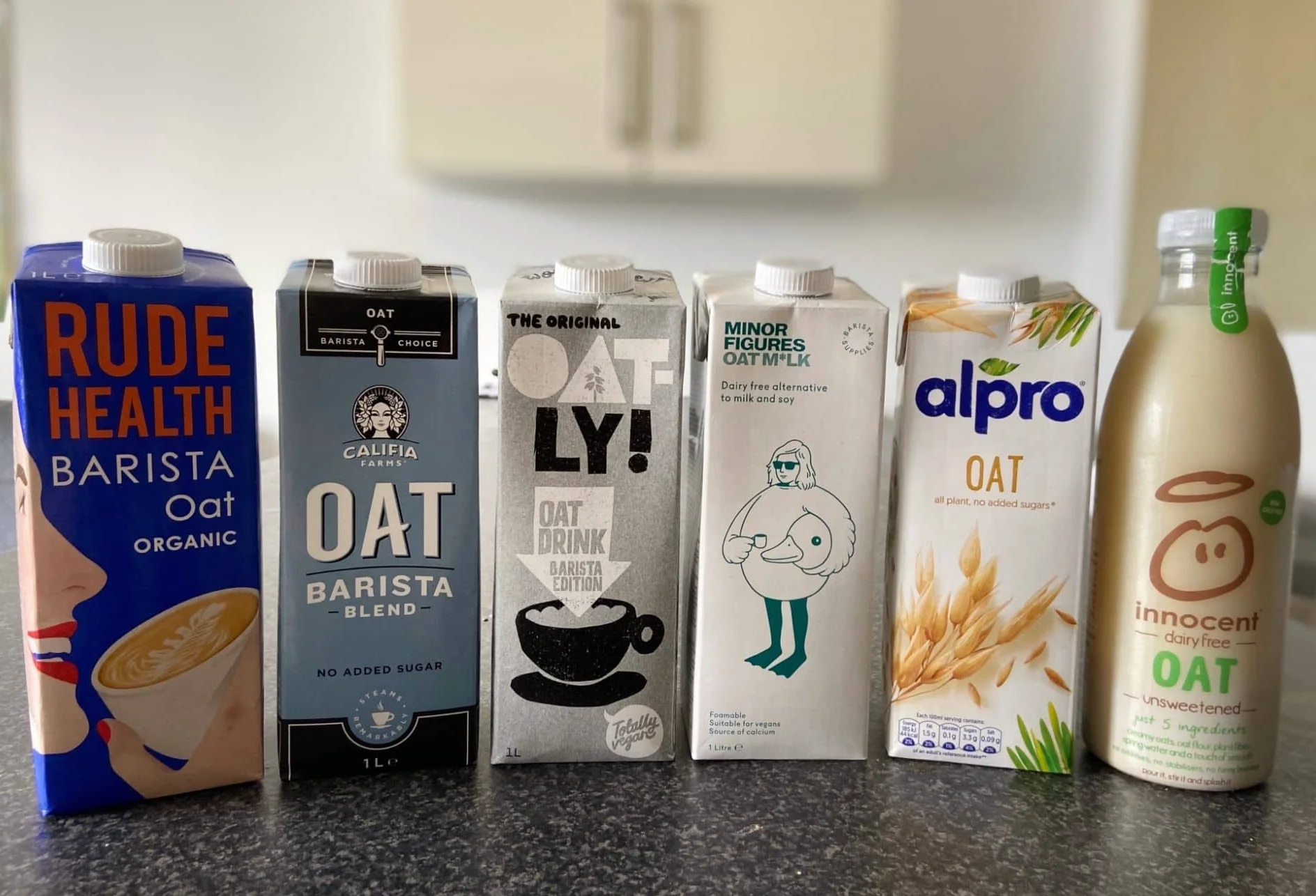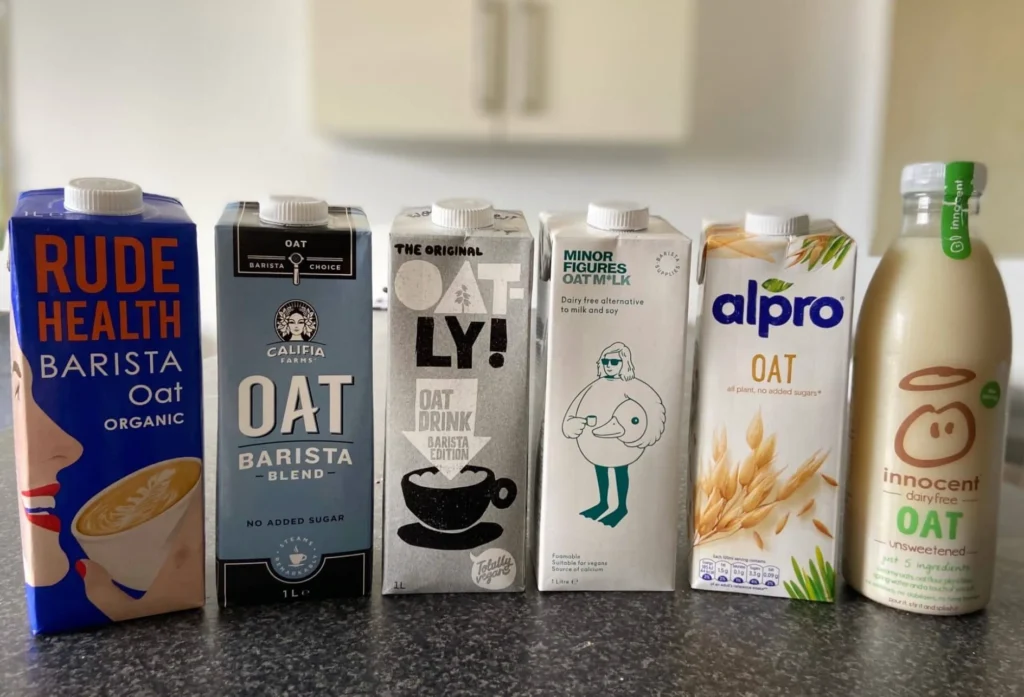
Plant-based milks have come a long way, and different varieties excel in different applications. Let’s break down how to choose the perfect non-dairy milk for your specific needs.

Coffee and Tea For your morning brew, barista versions of oat and soy milk reign supreme. Regular oat milk can separate in hot drinks, but barista blends are specifically formulated to steam well and create silky microfoam. They also have a neutral taste that won’t overshadow your beverage. Soy milk is another excellent choice, offering good heat stability and a creamy texture that mimics dairy milk most closely.
Baking When it comes to baking, soy milk is often your best bet. Its protein content is closest to dairy milk, which helps provide structure to baked goods. For recipes where you want minimal flavour impact, unsweetened almond milk works well too. However, avoid coconut milk unless you want that distinct tropical taste in your final product.
Smoothies and Cold Drinks This is where cashew milk shines. Its rich, creamy texture blends beautifully into smoothies without the sometimes chalky aftertaste of other alternatives. Almond milk is another great option, especially in fruit smoothies where its light, clean taste won’t compete with other flavours.
Cooking and Savoury Dishes For creamy sauces and soups, full-fat oat milk provides excellent body and a neutral flavour profile that works well with both delicate and robust dishes. Coconut milk is perfect for curries and Asian cuisine, though its distinct flavor means it’s not always interchangeable with other milk alternatives.
Cereal and Granola Here’s where personal preference really matters, but almond and oat milk are popular choices. Oat milk’s natural sweetness complements cereals well, while almond milk offers a lighter option that lets the cereal’s flavors shine through.
Weight and Nutrition Considerations If you’re counting calories, unsweetened almond milk typically has the lowest caloric content. For protein content, soy milk leads the pack, making it an excellent choice for those looking to increase their protein intake. Pea milk is another high-protein option that’s gaining popularity.
Creating the Perfect Hot Chocolate For an indulgent hot chocolate, nothing beats oat milk. Its natural sweetness and creamy texture create a rich, satisfying drink that rivals traditional dairy-based versions. Cashew milk is a close second, offering similar richness with a slightly nutty undertone.
The Environmental Factor While all plant-based milks have a lower environmental impact than dairy, oat milk generally requires less water than almond milk and produces fewer emissions than rice milk. If sustainability is your primary concern, oat and soy milk typically have the smallest environmental footprints.
A Note on Fortification Remember that not all plant-based milks are created equal in terms of nutrition. Look for fortified versions that contain calcium, vitamin D, and B12, especially if you’re fully plant-based. Soy and pea milk naturally contain more protein than other alternatives, making them better choices for those concerned about protein intake.
The bottom line? There’s no single “best” plant-based milk – it all depends on how you plan to use it. Keep a few varieties on hand for different purposes, and don’t be afraid to experiment to find your personal favourites. The perfect plant-based milk for your morning coffee might not be the same one you want in your curry, and that’s perfectly fine.